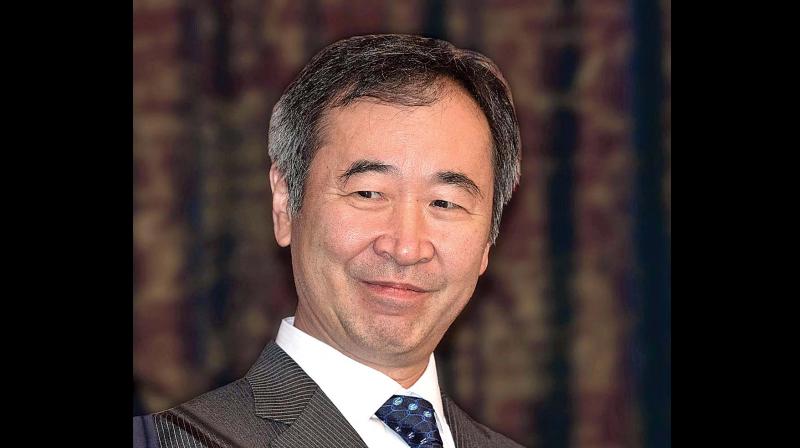Global neutrino community wants INO to go ahead: Takaaki Kajita

Chennai: The India-based Neutrino Observatory project is facing several hurdles and has been delayed by more than five years. Nobel Laureate Takaaki Kajita is, however, convinced it is a project worthwhile pursuing. “The global neutrino community is still waiting for the INO to go ahead as it can provide answers to several important questions about neutrinos.”
Japanese physicist Takaaki Kajita, jointly received the Nobel Prize in Physics in 2015 for the discovery of neutrino oscillations, which showed that the elementary particles of the universe do have mass. He was in Chennai to attend an event on Saturday. In an exclusive chat with Deccan Chronicle, he spoke about various issues including the delay in establishing India-based Neutrino Observatory (INO).
The Rs 1,500 crore project, which is to come up near Pottipuram in Bodi West Hills of Theni district, is facing several hurdles. The project’s environment clearance was cancelled by National Green Tribunal recently.
Q. The INO project is delayed more than five years now. How is the delay affecting the science community?
A: The delay in starting the India-based Neutrino Observatory is a huge loss to the scientific community. We expect several answers from INO such as the question of heaviest mass state in neutrinos. The global neutrino community is still waiting for INO to go ahead as soon as possible. So, I really hope that INO will get over all the problems and start construction.
Q. Is it possible to observe neutrinos and gravitational waves emitted by a single source simultaneously?
A: So far we have observed neutrinos, but no gravitational waves. We also have several gravitational waves observations, but no coincidence with neutrinos.
Q. What are the challenges in going forward with the neutrino research?
A: Now, we understand that neutrinos have mass. But we do not know what the heaviest neutrino mass state is. That is one of the major challenges in neutrino studies.
Q. Indian higher education institutions are laying more stress on applications-oriented research projects now. In the era of innovation, the basic science researches are not getting due attention. How do you see this trend?
A: In my opinion, the basic research and the researchers related to applications should have the proper balance. It is not the good idea to stress on applied research only. Maybe for a short term, you can get innovative results. But, in a longer term, if you do not have basic research then you have will have no seed to do applied research.
Q. After independence, we have not produced any Nobel Laureate in core science areas like physics and maths. How can Indian institutions improve in having advanced basic science research?
A: Basic science research is based on each researcher’s inquest. It’s important for researchers to think freely about Science. Indian researchers need to get involved with the global community. I think many Indian researchers are already involved.
Q. Now several students are showing interest in basic science courses and willing to take up a career in science. Any tips for them?
A: Young researchers should ask for support explicitly if they need any. They also need to have frequent communication with the global community.

